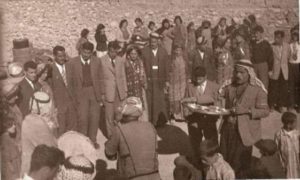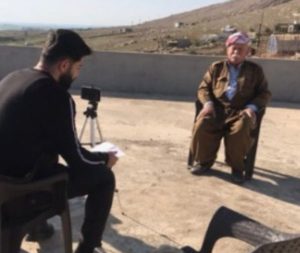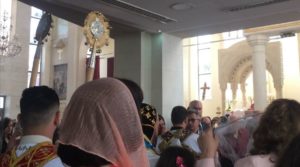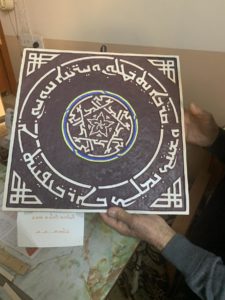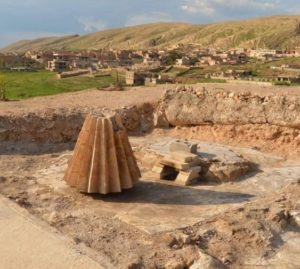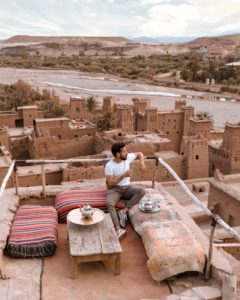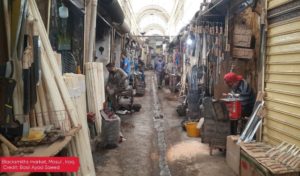We were delighted to welcome two delegations of twelve academics last week from the University of Mosul, led by its President Professor Dr Kossay Al-Ahmady, and from the University of Duhok, led by Dr Lukman Hasan, Vice President for Scientific Affairs and Postgraduate Studies to the Institute of Development Studies (IDS) in Brighton. Faculty staff who’ve trained and mentored over 100 “heritage gatherers” to document and preserve Iraq’s intangible heritage under threat were awarded certificates in recognition for their work by IDS Director, Professor Melissa Leach as well as Dr Al-Ahmady and Dr Hasan.
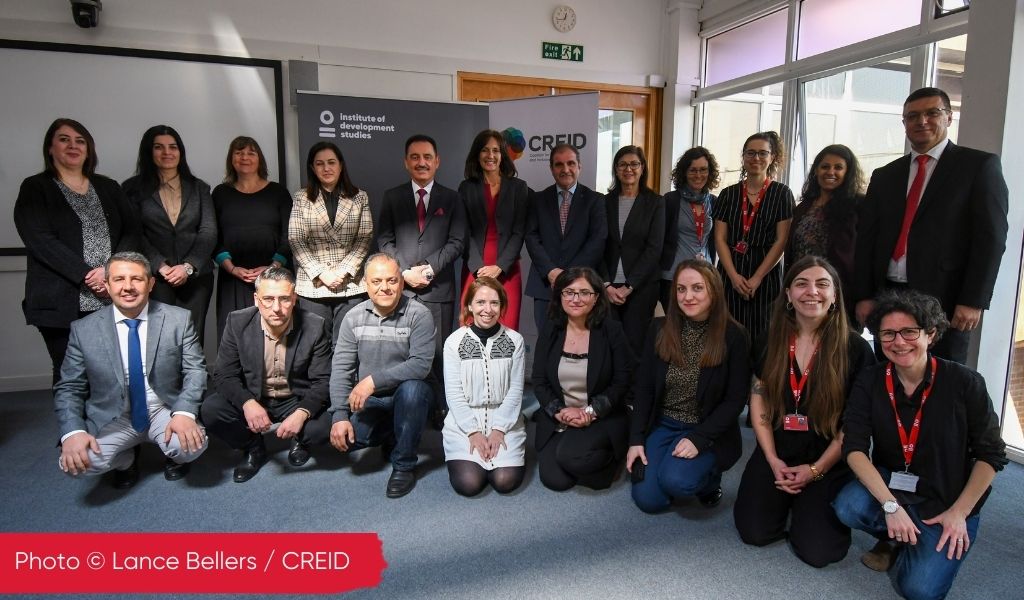
Decades of conflict and political upheaval in Iraq has left many of its historic buildings and cultural monuments in ruins, and communities broken up and displaced. Historic buildings are being rebuilt, such as Mosul’s historic al-Nuri mosque, and cultural artefacts are being recovered, as was done ahead of the re-opening of the Iraq Museum earlier this month.
But Iraq’s rich intangible heritage in the form of rituals and festivals, traditional crafts, dress and food, and ancient languages, is in danger of being lost. This is because many of its communities have been decimated and dispersed (over 1.2 million Iraqis continue to be displaced). Those belonging to its religious and ethnic minorities, who were deliberately targeted by IS/Daesh, such as the Chaldean Christians, Kaka’is, Sabians Mandeans and Yazidis, have been particularly hard hit.
Young Iraqis trained to document and preserve intangible heritage
Our Oral History Under Threat is a unique project which is working with young people to document and preserve this intangible heritage of Iraq.
Working closely with faculty at the University of Duhok and the University of Mosul in northern Iraq, CREID has trained over 100 young people from diverse ethnic and religious backgrounds over the past 18 months. Combining traditional research methods such as oral histories and topic interviews with modern documentation techniques, such as using video, the project has created and produced over 14,000 heritage items, including photos, blogs, personal testimonies and videos.
Life histories and topic interviews include:
- Interviewing traditional craftspeople such as a carpenter who makes different forms of Christian crosses used for celebrations or a respected calligrapher who is unique in his ability to write both Arabic and Aramaic calligraphy and can carve his writings on both wood and paper.
- Documenting the veneration and symbolism of the black serpent by Yazidis
- Unique celebrations of traditional religious festivals, such as Easter and Ramadan
- Interviewing and writing about the traditional medicines and healing practices
- Documenting how traditional stone ovens have been used for making breads and sweet pastries, made for celebrations, such as weddings, and festivals
Mareen Asaaf Younes, a heritage gatherer and graduate of the Engineering Department at the University of Mosul, said, “I was very proud to have joined the project to collect the Chaldean heritage of the village of Karamles, which is located in the Nineveh Plains. I think it is vital for us to seek to know about our heritage and to become familiar with it. It is also our responsibility to shape this heritage by preserving it and passing it on to future generations.”
Awards for faculty from the University of Mosul and Duhok
The delegations spent the week at IDS in a workshop sharing learning on the project, which culminated in an award ceremony which saw seven faculty staff receive certificates in recognition for their work training and supporting heritage gatherers.
IDS Director, Professor Melissa Leach, who handed out the awards alongside Professor Al-Ahmady and Dr Hasan, described the Oral History Under Threat project as an “exciting project bringing together old methods with new technology whose documenting “voices from below” closely aligned with IDS’ participatory values”.
The ceremony showcased three of the heritage stories, which will be available to view on our website soon.
Professor Dr Rawaa Qasha. Assistant Prof. and Director of the Scholarships and Cultural Relations who spoke on behalf of the University of Mosul and Dr Lukman Hasan, who spoke on behalf of the University of Duhok, expressed praise for both the staff and students involved, and commitment to maintaining and potentially expanding the project.
CREID Director and Professor of Politics and Development at the Institute of Development Studies (IDS), Professor Mariz Tadros, praised the staff’s unwavering commitment to their students, some of whom are refugees and faced challenging personal circumstances, especially during the pandemic.
She added “By training young people, we are not only supporting the localization of heritage preservation here in Iraq but also ensuring its future.”
This story was originally published by the Institute of Development Studies.

